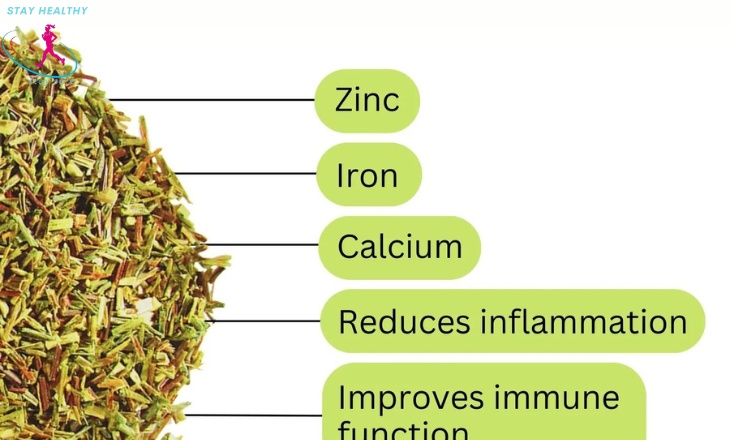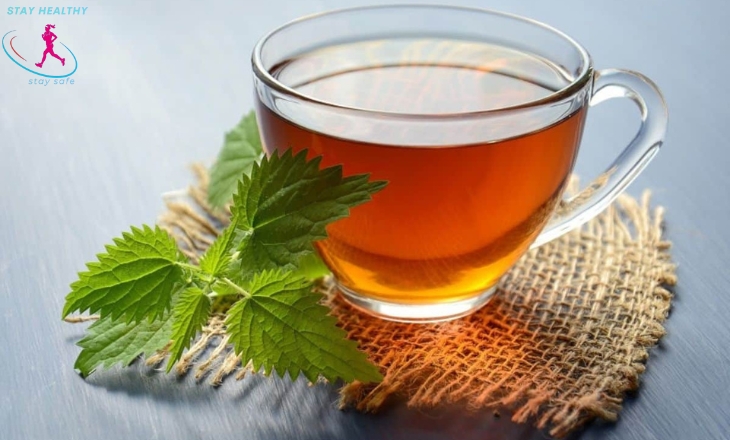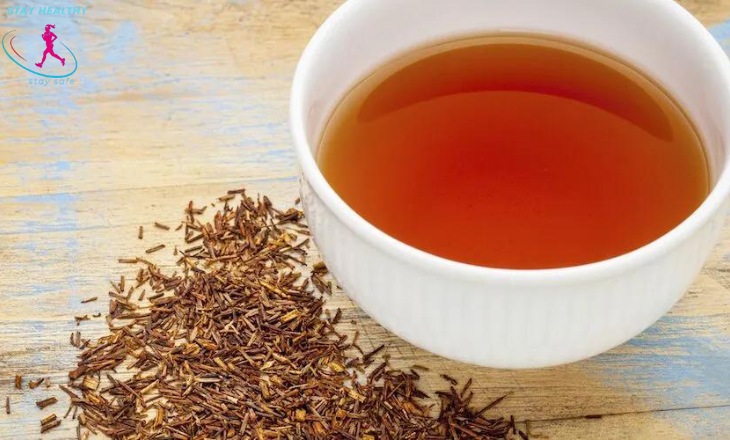From its rich antioxidant content to its potential for improving heart health, the benefits of green rooibos tea are compelling reasons to give this vibrant, caffeine-free beverage a try.
In this article, we’ll explore the various health benefits associated with rooibos tea and why it might be worth incorporating into your diet.
The history of rooibos tea benefits
Botanists first found rooibos tea in 1772, but it wasn’t until 1968 that Dr. Annique Theron discovered it could calm her allergy-prone, colicky baby. This discovery earned Dr. Theron the title of South Africa’s “Mother of Rooibos,” according to Adele du Toit, a spokesperson for the South African Rooibos Council. Dr. Theron is credited with highlighting the benefits of rooibos tea.
“Since Dr. Theron’s discovery, many South African women have come to rely on this unique herb for almost every health issue,” says Du Toit. “Whether it’s soothing sunburn, calming a colicky baby, or dealing with skin breakouts or emotional breakups, rooibos has become a go-to remedy for many women.”
The benefits of green rooibos tea
Rooibos tea, a herbal infusion from the leaves of the Aspalathus linearis plant, has steadily gained popularity worldwide, not only for its unique, naturally sweet flavor but also for its potential health benefits. Often compared to green tea, green rooibos tea made from unfermented leaves offers a range of advantages that could make it a valuable addition to your daily routine.

Anti-inflammatory
Rooibos tea is steadily gaining recognition for its impressive anti-inflammatory properties, making it a fantastic addition to your wellness routine. Rich in antioxidants like aspalathin and nothofagin, this herbal tea helps combat inflammation at a cellular level. Unlike many other teas, rooibos is caffeine-free and low in tannins, which means it’s gentle on the stomach and can be enjoyed any time of day.
Regular consumption of rooibos tea can support joint health, reduce the risk of chronic diseases, and even alleviate symptoms of arthritis. By incorporating this soothing beverage into your diet, you can harness the natural benefits of rooibos tea and promote overall well-being.
Antihistamine
Rooibos tea is not only a delicious and caffeine-free beverage but also a natural antihistamine, making it an excellent choice for those dealing with allergies. This herbal tea contains quercetin and rutin, powerful compounds known to block the release of histamines and reduce allergy symptoms.

Unlike over-the-counter antihistamines, rooibos tea doesn’t cause drowsiness, making it a safe and effective option for daily use. Incorporating rooibos tea into your routine can help manage seasonal allergies, skin irritations, and respiratory issues, offering a natural remedy with minimal side effects.
Anti-aging
Rooibos tea is gaining popularity not only for its delightful taste but also for its remarkable anti-aging benefits. Packed with antioxidants like superoxide dismutase and aspalathin, this herbal tea helps combat free radicals, which are responsible for skin aging and wrinkles.
Regular consumption of rooibos tea can promote youthful, glowing skin by reducing oxidative stress. The benefits of rooibos tea for hair are noteworthy—it strengthens hair follicles, reduces dandruff, and promotes healthy, shiny hair. By incorporating rooibos tea into your daily routine, you can harness its natural anti-aging properties and enjoy healthier skin and hair.
Skin protection
Rooibos tea is a fantastic addition to your skincare routine, offering numerous benefits for skin protection. Rich in antioxidants such as zinc and alpha hydroxy acid, rooibos tea helps protect the skin from damage caused by environmental factors and UV exposure.

These powerful compounds work to soothe irritated skin, reduce redness, and promote a healthy complexion. The benefits of rooibos tea for skin don’t stop there its anti-inflammatory properties can help alleviate acne, eczema, and psoriasis. By incorporating rooibos tea into your daily regimen, you can enjoy a natural and effective way to maintain radiant, healthy skin.
Weight control
Rooibos tea is becoming a popular choice for those looking to control their weight naturally. One of the key benefits of rooibos tea for weight loss is its ability to help regulate metabolism and reduce fat storage. Rich in antioxidants like aspalathin, this herbal tea can help balance blood sugar levels, which is crucial for managing cravings and reducing hunger.
The rooibos tea is caffeine-free and low in calories, making it an excellent alternative to sugary drinks. By incorporating rooibos tea into your daily routine, you can support your weight management goals while enjoying a delicious and refreshing beverage.
Blood sugar
Rooibos tea, particularly pure rooibos and green rooibos tea, offers remarkable benefits for managing blood sugar levels. Unlike regular green tea, rooibos green tea is caffeine-free and packed with antioxidants such as aspalathin, which has been shown to help regulate blood sugar and improve insulin sensitivity. This makes it an excellent choice for those looking to maintain healthy glucose levels naturally.

The unique compounds in rooibos tea can help reduce the risk of type 2 diabetes and support overall metabolic health. By choosing pure rooibos or rooibos green tea over traditional green tea, you can enjoy a soothing beverage that aids in blood sugar control and promotes a balanced, healthy lifestyle.
Potential side effects
Are you considering adding rooibos tea to your daily routine? While pure rooibos tea is generally considered safe, it’s essential to be aware of the potential side effects. Some individuals may experience mild allergic reactions like skin irritation or stomach discomfort, although these occurrences are quite rare. It’s important to note that rooibos tea contains lower levels of tannins than green tea, which can make it a gentler option for those with sensitive stomachs.

When comparing rooibos green tea vs. green tea, it’s worth noting that the former is caffeine-free, making it an excellent choice for those looking to reduce their caffeine intake. As with any new addition to your diet, it’s always best to consult with a healthcare professional to ensure that it’s the right choice for you. Consider incorporating pure rooibos tea into your routine and experience its potential benefits, while being mindful of its potential side effects.
Conclusion
The benefits of green rooibos tea make it a compelling choice for those seeking a healthy and flavorful beverage option. With its rich antioxidant content, including polyphenols and flavonoids, green rooibos tea offers a powerful defense against oxidative stress and inflammation, potentially reducing the risk of chronic diseases.
Its caffeine-free nature and low tannin levels make it a gentle choice for individuals with sensitive stomachs. The potential benefits of green rooibos tea extend to its ability to support healthy skin, aid in digestion, and promote overall well-being. Whether enjoyed hot or cold, green rooibos tea presents a refreshing and healthful alternative to traditional teas, making it a beverage worth trying for those looking to elevate their wellness routine.
FAQs
What happens if I drink rooibos tea everyday?
Consuming rooibos tea on a daily basis has been associated with decreased blood pressure, enhanced cholesterol levels, and a lowered likelihood of developing cardiovascular disease. These benefits can act as protective measures against heart-related ailments, such as heart attacks and strokes. Research indicates that rooibos tea has the potential to decrease blood sugar levels, further contributing to its positive impact on overall health.
Why do people like rooibos tea?
Rooibos is renowned for its health-promoting properties. In addition to being rich in vitamins and minerals, it boasts an even higher antioxidant content than green tea, making it a hydrating and immune-boosting beverage. Many individuals turn to rooibos to alleviate allergies or to enjoy a soothing and calming effect before bedtime.
What is the disadvantage of rooibos?
Studies have indicated that prolonged exposure to rooibos may potentially impact the reproductive system, impair fertility, or affect liver and kidney function in rat models. A few cases of liver toxicity associated with long-term use or ingestion of large amounts of rooibos have been reported in humans. It’s important to note that compounds isolated from rooibos leaves have demonstrated estrogenic activity, which raises caution for patients with hormone-sensitive cancers and to consult with a healthcare professional for personalized guidance.
Does rooibos tea burn belly fat?
Rooibos tea represents another variety of herbal tea that exhibits potential effectiveness in the realm of fat burning. Specifically, a test-tube study conducted in 2014 demonstrated that rooibos tea heightened fat metabolism and contributed to inhibiting the formation of fat cells.
